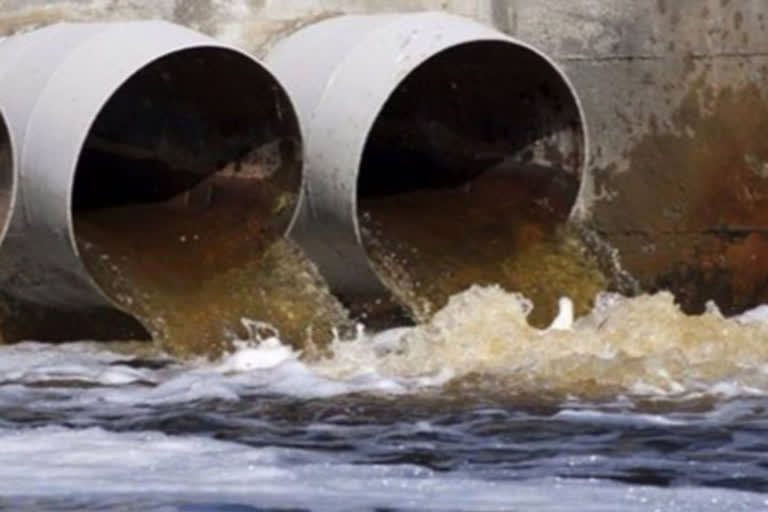Hyderabad: Sewage water is flooding India’s towns and cities. Wastewater treatment is confined to the paper. Without getting treated, domestic and industrial wastewater is flowing into cities’ canals and lakes, causing water pollution. As a result, reports indicate that 3,50,000 children die each year in the country from waterborne diseases like diarrhoea.
Sewage is also contaminating the groundwater. Towns are plagued with environmental hazards. The threat of sewage is increasing with rapid urbanization and rising water consumption. Cities and towns in the country generate more than 72,000 million litres (MLD) of wastewater per day.
However, as per official sources, only 30 percent of it is getting treated. Governments and urban local bodies are not prioritizing the establishment of wastewater treatment plants. During the rainy season, sewers are filled with rainwater and flooding the roads.
According to the Pollution Control Board’s report, there are currently 920 sewage treatment plants in the major cities of the country. Their treatment capacity is about 31,000 MLD. According to a study by Ernst and Young report, only 60 percent of industrial and 26 percent of domestic wastewater is getting treated.
Read: Delhi HC refuses to exempt GST for oxygen equipment
Union Minister Javadekar himself admitted that 70 percent of sewage treatment plants in the country are not functional. The operating standards of the existing plants are not up to international standards. There is no drainage system in many states. Except in Visakhapatnam, Vijayawada and Kakinada, there are no treatment plants in Andhra Pradesh. Only Hyderabad has partial sewage management system in Telangana.
While Hyderabad generates 2,000 MLD of wastewater a day, the capacity of treatment plants is just 750 MLD. Only 10 percent of the total wastewater in Andhra Pradesh is getting treated. The Andhra Pradesh government has decided to set up treatment plants in every municipality to reduce water pollution. Cities and towns in Telangana (excluding Hyderabad) generate 500 MLD of wastewater a day.
Of which, even 10 MLD is not getting treated. The city administrations of Warangal, Nizamabad, Ramagundam and Khammam do not have sewage treatment facilities. Ponds and tanks in the state are overflowing with contaminated water.
In certain places, polluted water is being diverted into village lakes. Sewage management in both the Telugu states is at its worst. 124 towns do not have even minimum drainage maintenance.
Read: Covid symptoms found in lions at Hyderabad zoo
Recently, the central government has focused on wastewater treatment plants as a part of the cleanliness survey. Efforts are being made to set up sewage treatment plants in the cities where AMRUT (Atal Mission for Rejuvenation and Urban Transformation ) scheme is being implemented. An expert team at JNTU said in its report that the flooding in cities cannot be solved without correcting the shortcomings in wastewater treatment.
Scientific wastewater management is critical to preventing water pollution and waterborne diseases. Treatment plants with adequate capacity should be set up across all the towns and cities. Water treatment plants can give employment to people in rural and semirural areas.
Municipalities can sell treated water to industries at their plants. Nagpur Municipality built a sewage treatment plant on public-private partnership basis for Rs 130 crore. The plant purifies 480 MLD per day. Besides, it stood as an example by providing drinking water to 12 lakh people daily.
The treatment plants can also generate CNG from wastewater. A recent study found that diarrhoea can be eliminated through effective sewage management. Purified water can be used for cultivation, horticulture, industrial refrigeration or for public toilets. Future water shortage can be overcome with preventive storage. Urban local bodies need to plan the construction of a proper, efficient and advanced wastewater management system.
Setting up adequate sewage treatment plants is paramount to mitigating the risk of flooding in cities. Encroachment of sewage canals should be taken seriously. Only then, the goal of building clean and smart cities can be realized.
Read: DRDO supplies 100 oxygen cylinders to Hyderabad hospital


